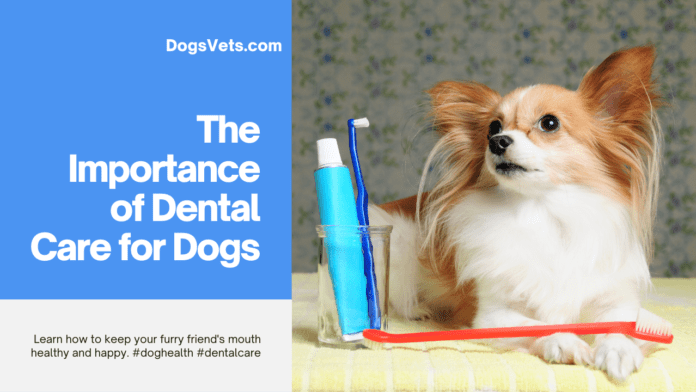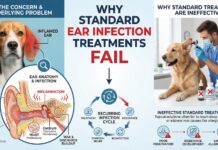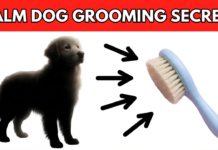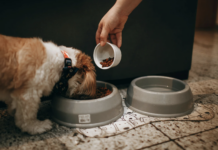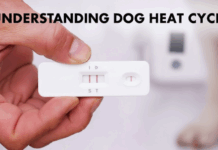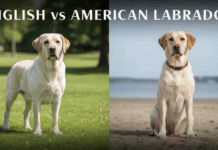Last Updated on April 10, 2024 by Dog Lover
The Importance of Dental Care for Dogs: Keeping Your Canine Companion Smiling Brightly
Fido fetches the ball, licks your face with enthusiasm, and offers endless cuddles. But have you ever stopped to consider your dog’s dental health?
While those pearly whites might seem invincible, neglecting dental care can lead to a world of problems for your furry friend.
Think of your dog’s mouth as a breeding ground for bacteria. Every chew, lick, and kibble chomp contributes to a film called plaque.
Left unchecked, plaque hardens into tartar, a yellow, crusty build-up that irritates gums and leads to gingivitis, the doggy equivalent of gum disease.
This not only causes discomfort and bad breath (trust us, you won’t want to be on the receiving end of doggy halitosis!), but it can also have serious consequences for your dog’s overall health.
Here’s why dental care for dogs is pawsitively essential:
This comprehensive guide will delve into the importance of dental care for dogs, explore various methods to keep your pup’s mouth sparkling clean, and answer some frequently asked questions.
So, grab your favorite dog treat (and maybe a breath mint for yourself), and let’s get started!
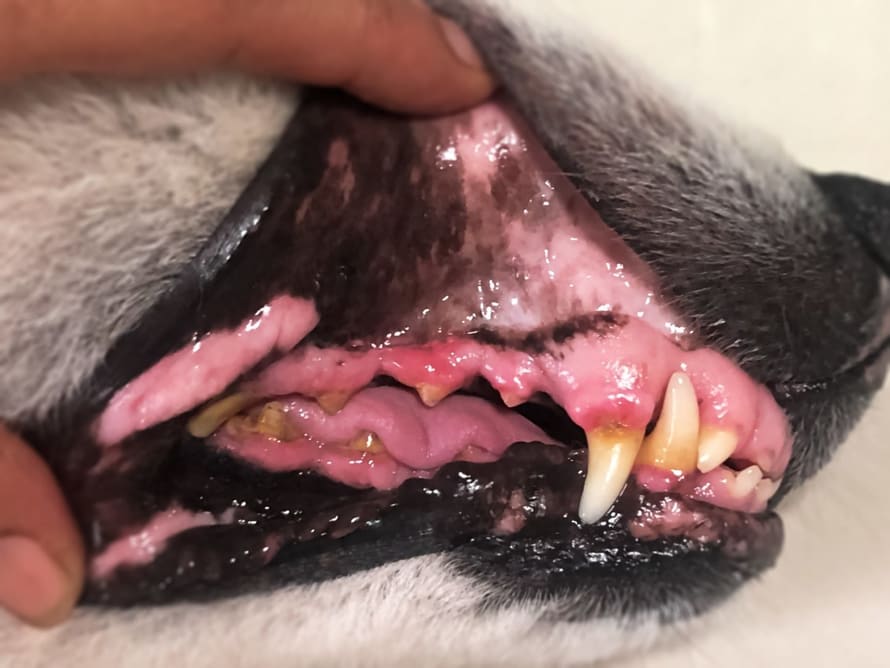
The Dangers of Untreated Dental Disease in Dogs
Ignoring dental hygiene isn’t just about bad breath.
Here’s how neglecting your dog’s oral health can snowball into bigger issues:
- Painful Inflammation: Gingivitis, the early stage of gum disease, causes inflammation and irritation in the gums, leading to discomfort and making it difficult for your dog to eat. Imagine a constant toothache – not pleasant!
- Tooth Loss: As tartar accumulates, it weakens the structures supporting your dog’s teeth. Eventually, these teeth can loosen and fall out, making it challenging for your dog to chew and potentially impacting their nutrition.
- Bacterial Invasion: The bacteria in your dog’s mouth doesn’t stay put. It can enter the bloodstream through inflamed gums, potentially reaching vital organs like the heart, liver, and kidneys. This can lead to serious health complications.
- Reduced Quality of Life: Chronic pain and discomfort from dental disease can significantly affect your dog’s quality of life. They might become less playful, lose their appetite, and exhibit behavioral changes due to pain.
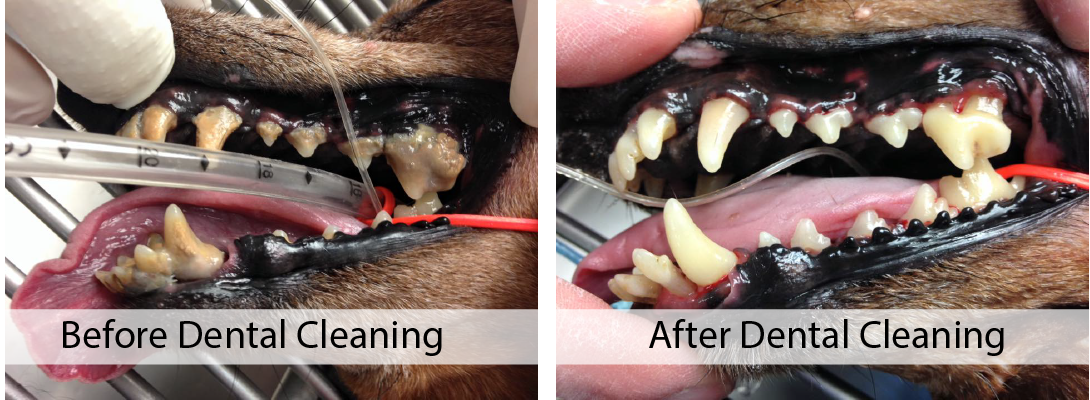
Signs Your Dog Needs Dental Attention
Unlike humans who can readily express discomfort, dogs tend to be stoic when it comes to pain. Here are some signs that might indicate your dog needs a dental checkup:
- Bad Breath: While all dogs have some doggy breath, persistent, foul-smelling breath can be a sign of dental disease.
- Red, Swollen Gums: Healthy gums should be pink and firm. Inflamed, red, or bleeding gums are a red flag for gingivitis.
- Difficulty Chewing: If your dog seems hesitant to chew on their kibble or favorite chew toys, it could be due to pain in their mouth.
- Drooling: Excessive drooling can be a sign of discomfort or mouth pain.
- Pawing at the Mouth: If your dog seems to be pawing at their mouth frequently, it could be an indication of irritation or pain.
:max_bytes(150000):strip_icc()/woman-brushing-dog-teeth-112257723-2000-420852ebf2834796a24e5885e0703fa6.jpg)
Brushing Your Dog’s Teeth: A Winning Habit
Just like humans, the gold standard for maintaining good dental health in dogs is regular brushing. Here’s how to make it a positive experience for both of you:
- Start Early: Introduce your dog to the concept of teeth brushing from a young age. Use a dog-specific toothpaste (human toothpaste can be harmful to dogs) and a soft-bristled brush designed for canine mouths.
- Positive Reinforcement: Make brushing a fun and rewarding experience. Use plenty of praise and treats to keep your dog motivated.
- Focus on Reachable Areas: You might not be able to brush your dog’s entire mouth initially. Start with the front teeth and gradually work your way back as your dog gets comfortable.
- Consistency is Key: Aim to brush your dog’s teeth at least a few times a week, ideally daily, for optimal results.

Dental Treats and Chews: A Supporting Role
While brushing is the best defense against dental disease, dental chews and treats can play a supporting role in your dog’s oral hygiene routine.
Look for treats and chews with the Veterinary Oral Health Council (VOHC) seal of approval, which indicates they have been shown to help control plaque and tartar buildup.
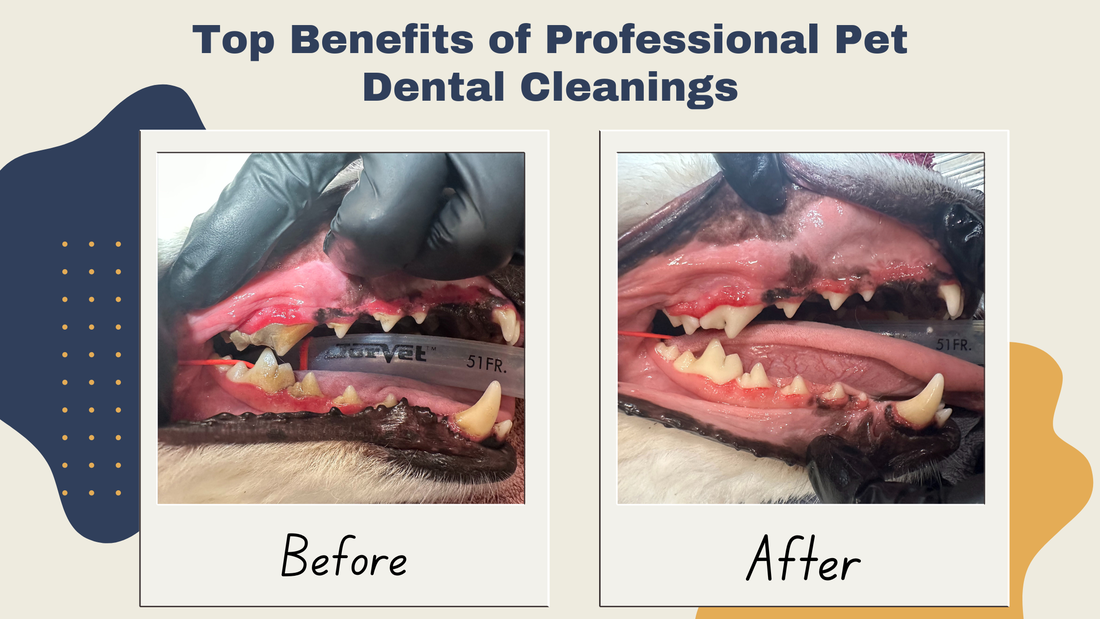
Dental Cleanings at the Vet: A Vital Part of the Picture
Even with diligent home care, professional dental cleanings under anesthesia are crucial for maintaining your dog’s oral health.
During a dental cleaning, your veterinarian will scale away tartar, remove infected teeth if necessary, and perform a thorough examination of your dog’s mouth.
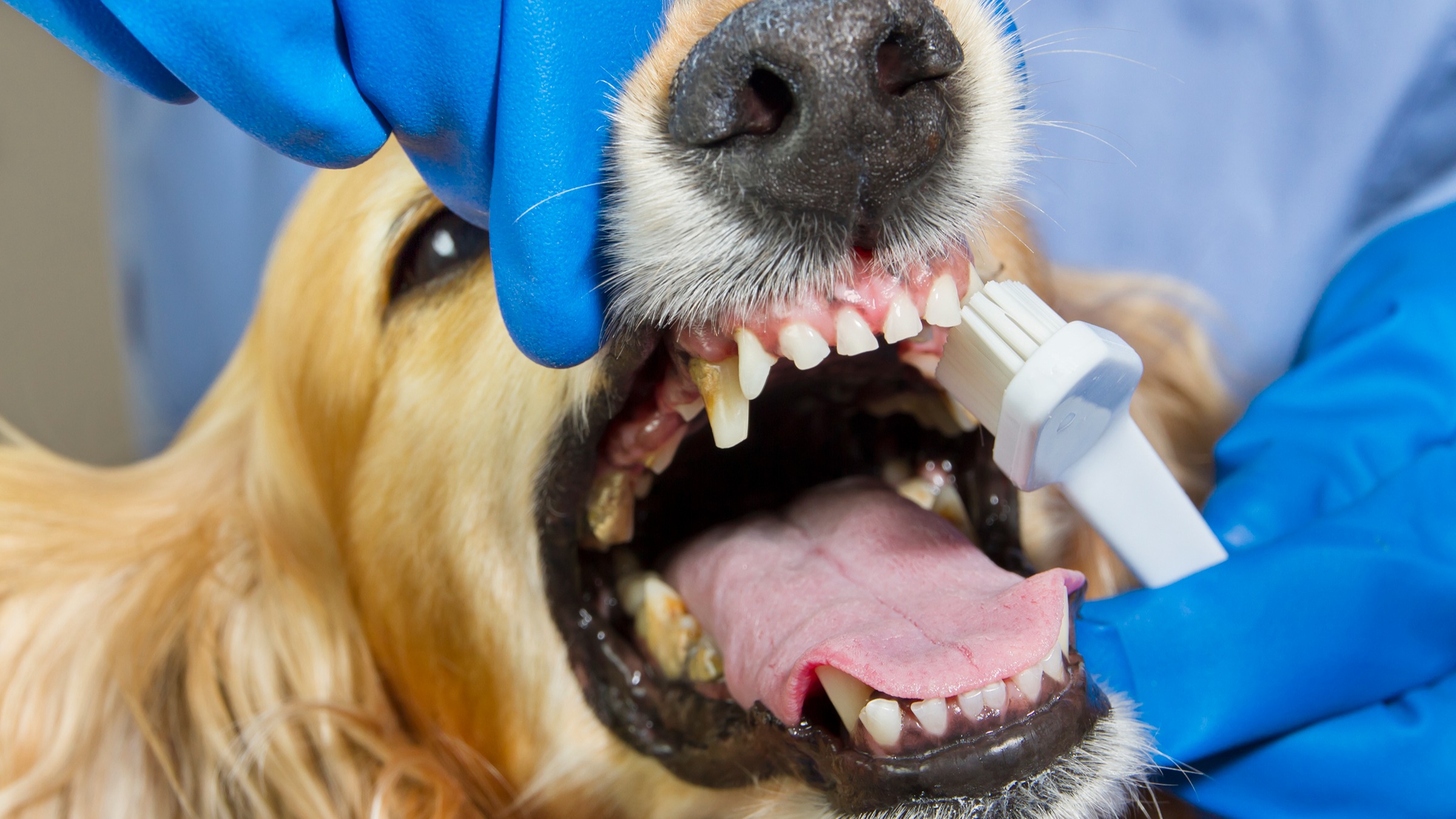
Frequency of Dental Cleanings for Dogs
The frequency of dental cleanings for dogs depends on several factors, including:
- Age: Younger dogs with healthy teeth might only need cleanings every two to three years. However, senior dogs or those prone to dental problems may require cleanings annually.
- Breed: Certain breeds, like small dogs and brachycephalic breeds (pugs, bulldogs), are more susceptible to dental issues and may need cleanings more frequently.
- Overall Dental Health: The condition of your dog’s teeth and gums will play a significant role in determining how often they need professional cleanings.
It’s essential to discuss your dog’s specific needs with your veterinarian to determine an appropriate cleaning schedule.
They will perform a thorough dental exam during your dog’s regular check-ups and recommend the best course of action.
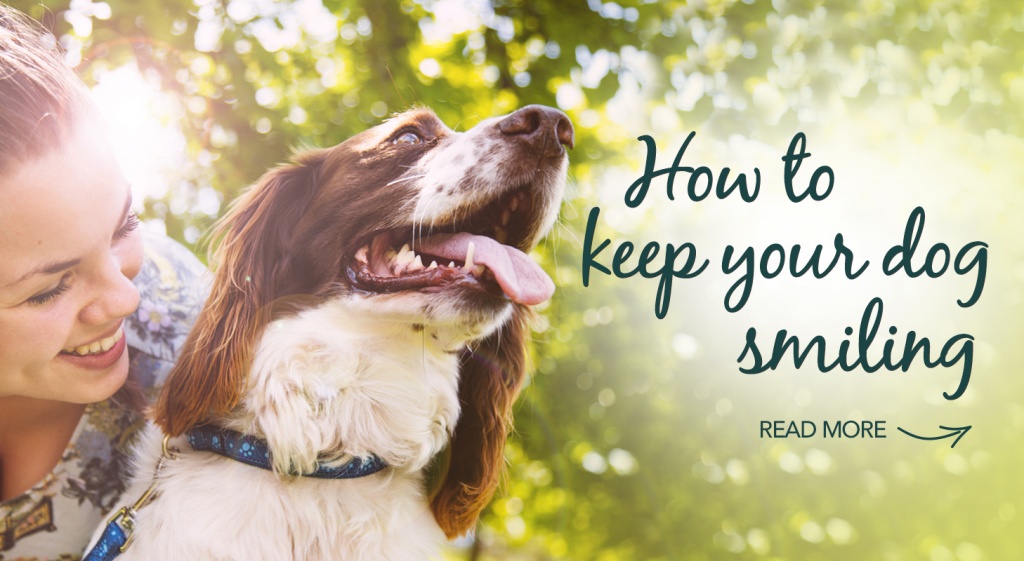
Additional Strategies for Healthy Doggy Smiles
Here are some additional tips to keep your dog’s smile sparkling:
- Dental Toys: Provide your dog with chew toys designed to promote dental health. These toys often have ridges or textures that help scrape away plaque and tartar buildup as your dog chews.
- Dental Water Additives: Consider adding a dental water additive to your dog’s water bowl. These additives can help freshen breath and reduce plaque buildup. However, consult your veterinarian before using any new product.
- Dietary Considerations: There are specific dog foods formulated to support dental health. These foods often contain ingredients that help reduce plaque and tartar formation.
Remember, prevention is always better than cure.
By implementing a comprehensive dental care routine that includes brushing, dental chews, regular vet checkups, and professional cleanings when necessary, you can help your dog maintain good oral health and live a longer, happier life.
Frequently Asked Questions (FAQs) about Dog Dental Care
Can I use human toothpaste on my dog?
Absolutely not! Human toothpaste contains ingredients like fluoride and xylitol, which are toxic to dogs. Stick to dog-specific toothpaste formulated for canine consumption.
My dog hates having their teeth brushed. What can I do?
Desensitize your dog gradually. Start by letting them get familiar with the taste of the toothpaste by smearing it on your finger and allowing them to lick it. Gradually work your way up to using a toothbrush. Positive reinforcement with treats and praise is key!
Are dental chews a substitute for brushing?
Dental chews are a helpful supplement, but they shouldn’t replace brushing entirely. Brushing allows you to reach all surfaces of your dog’s teeth, which chews might not be able to access.
What are the signs of a dental infection in my dog?
In addition to the signs mentioned earlier (bad breath, red gums, difficulty chewing), a dental infection might cause facial swelling, pus discharge from the mouth, and loss of appetite. If you suspect a dental infection, consult your veterinarian immediately.
How much does a dog dental cleaning cost?
The cost of a dog dental cleaning can vary depending on your location, the veterinarian, and the complexity of the procedure. Generally, it ranges from a few hundred dollars to over a thousand dollars. Discuss the cost estimate with your veterinarian before scheduling the cleaning.
By following these tips and addressing any questions or concerns with your veterinarian, you can ensure your furry friend maintains a healthy smile and enjoys a lifetime of good oral health.
Verified Source References
- American Veterinary Dental College: https://avdc.org/
- Veterinary Oral Health Council: https://vohc.org/
